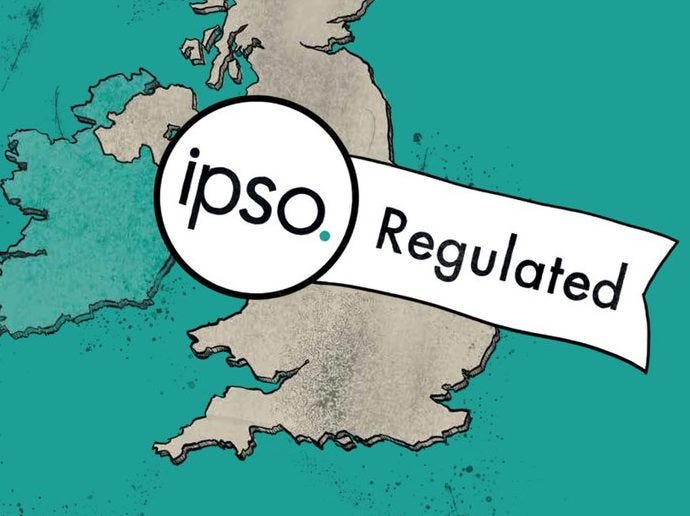By Gabriel Princewill-
The Independent Press Standards Organisation (IPSO) has today upheld a complaint against The Scottish Sun, finding that the newspaper’s journalists had pursued an individual in a manner deemed intimidating and in violation of established ethical standards, and Ipso’s Code of Conduct
The background of the case revolves around The Scottish Sun’s pursuit of the complainant, the details of which was the subject of the complaint.
The complainant argued that the newspaper’s relentless pursuit and coverage amounted to harassment, causing distress and anxiety.
The complainant said that the cars had left and re-joined the motorway at junctions to reappear in front and behind her car, and that this continued for nearly 40 miles.
Describing the behaviour of the reporter and photographer as intimidating, reckless, endangering and had put her family at risk driving at speed on a motorway, she said that the incident was exacerbated by the fact that her young child was in the car – which she believed the photographer must have been aware of, as they would have seen the child entering the vehicle.
The complaint alleged that the publication was in breach of the third Clause of Ipsos Code Of Conduct.
The Code under Clause 3 states that :Journalists must not engage in intimidation, harassment or persistent pursuit.
ii) They must not persist in questioning, telephoning, pursuing or photographing individuals once asked to desist; nor remain on property when asked to leave and must not follow them. If requested, they must identify themselves and whom they represent.
iii) Editors must ensure these principles are observed by those working for them and take care not to use non-compliant material from other sources.
The publication did not accept that the reporter and the photographer behaved in the manner alleged by the complainant. It did not accept that their behaviour constituted intimidation, harassment, or persistent pursuit.
The Scottish Sun said in its submissions to the press regulator that the reporter saw the complainant’s car leave and drove in the same direction.
He continued driving behind the complainant’s car for a few minutes, and the publication said there was a “significant distance” between the cars and at times there were other cars between them, so the reporter’s view of the car was obscured.
IPSO rejected the publication’s position that both sightings on the motorway had been “chance sightings”.
It further noted that, by the account of one of the photographers, they had followed the complainant’s car to confirm that it was indeed her vehicle – exiting the motorway to confirm that this was the case – and only stopped following her when traffic lights prevented them from continuing.
IPSO also noted that the pursuit had taken place on a journey to and on a motorway, while the complainant’s child was in the car – a fact which at least one photographer was aware of.
It concluded that the nature of this pursuit would have been extremely intimidating and harassing for the complainant and her family.
IPSO’s ruling acknowledges the importance of journalistic investigation but emphasizes that such pursuits must be conducted ethically, respecting the dignity and privacy of individuals involved.
The case prompts a closer examination of the fine line journalists tread when seeking information and the responsibility they bear in safeguarding the well-being of those they report on.
The Scottish Sun’s pursuit of the individual in question raises questions about the extent to which journalists can go in their quest for a story.
While investigative journalism plays a crucial role in exposing matters of public interest, it is equally important to recognize the potential harm that intrusive tactics can inflict on individuals.
The case at hand brings attention to the need for news organizations to establish clear ethical guidelines and ensure that their journalists adhere to these standards.
It prompts reflection on where the line should be drawn between rigorous investigative reporting and the protection of individuals’ rights and well-being.
Journalists have a responsibility to balance the public’s right to know with the rights of individuals to privacy and dignity.
The IPSO ruling suggests that The Scottish Sun’s pursuit may have crossed a threshold where the impact on the individual became unduly distressing and intimidating.
A general guideline for responsible journalism involves a careful assessment of the public interest against the potential harm to individuals.
The pursuit of a story should not compromise the well-being of those involved, and journalists should exercise restraint when the balance tips toward undue intrusion.
The IPSO ruling serves as a valuable lesson for the Scottish Sun and other news organizations and journalists, prompting a reevaluation of their approaches to investigative reporting.




